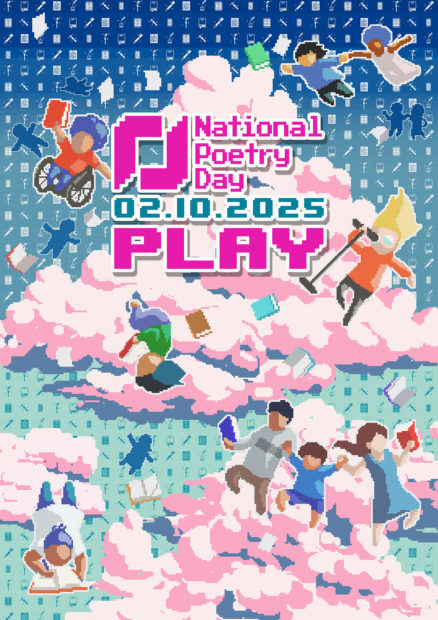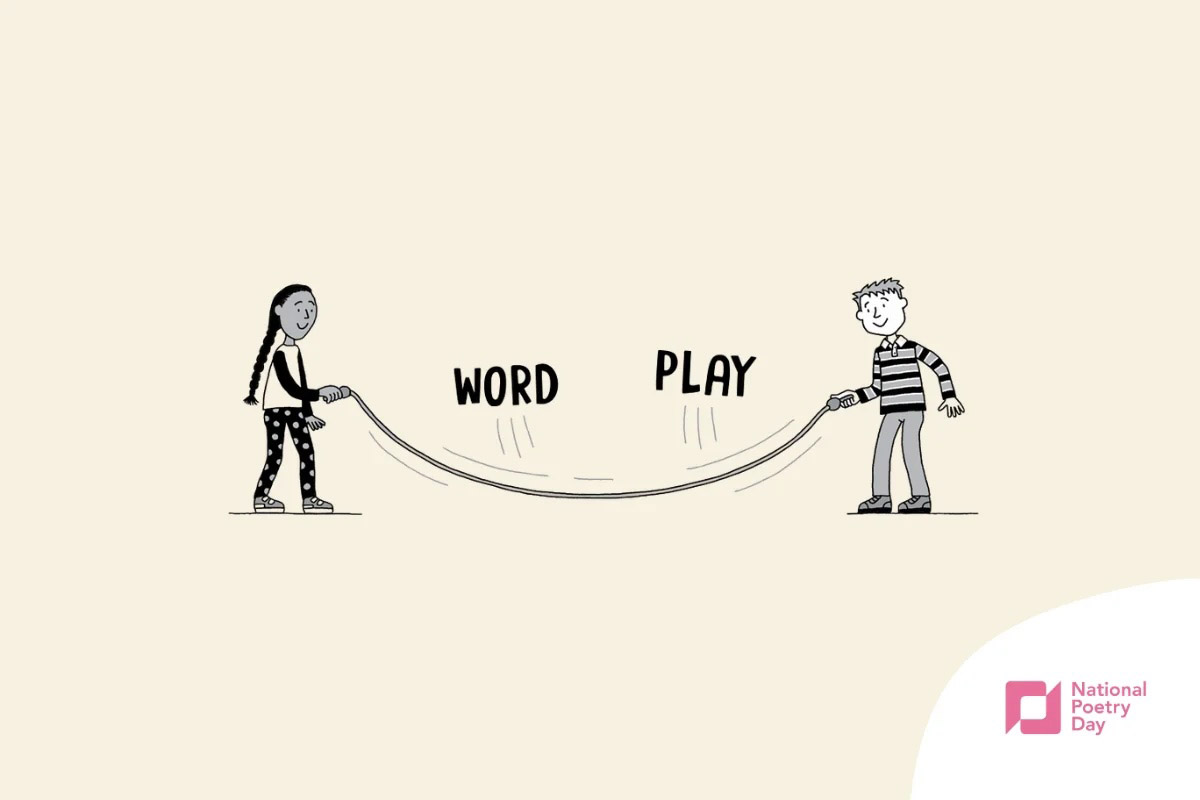This year's UK National Poetry Day is on 2 October. A great opportunity to get some poetry into your class, and to explore this year's theme: Play. In any case, every day is Poetry Day!
There are a couple of ideas of activities around the theme of play that you can use in an ESL class.
Word Play is based on a poem by Michaela Morgan. She asked primary-school children to come up with compound words and she created interesting interpretations for them such as:
Is a butterfly
a fly
made out of butter?
Is a football
a ball
made out of feet?
It's great to get ESL learners to think about the way words are constructed. You could give them examples of the words used before reading the poem in class. The teaching tips suggest cutting out triangles that pupils decorate with their own compound words, existing or invented, in words, pictures or both. The triangles can then be strung together as bunting to decorate the classroom.
For slightly older learners, there is an activity called Press Play. Pupils are encouraged to think about films, TV series or songs that have influenced them. They make a list of 10, then choose one and write about the memories it evokes. They then use elements from their text to create a haiku (three lines of 5, 7 and 5 syllables) and record themselves reciting it.
Lots of Poems
The National Poetry Day site has lots of poems, a little something for everyone. There are well-known contemporary writers such as Brian Bilston, Michael Rosen or Laura Mucha and historical writers like Robert Louis Stevenson and John Agard.
"Monster March" by Jane Newberry lends itself well to doing actions and exploring alliteration and onomatopoeia. "Rules for a Good Walk"
by Lucinda Jacob is a natural way to use the imperative and the refrain "put your phone away" will be familiar to pupils and teachers alike. "Skipping Rope Spell" by John Agard also uses the imperative and would be great for having pupils practise reading out loud as it is short, simple and very rhythmical.
Reading Out Loud
Why not ask pupils to learn just a couple of lines of one of the poem? Then they can give a group recitation, which allows them to practise other skills such as listening, and trying to match their delivery to the others’. Learning to recite two lines with care is very different from learning a longer piece, where the memorisation becomes the main task, rather than pronunciation, rhythm or understanding.

Copyright(s) :
National Poetry Day
Nick Sharratt
> Read Poems Out Loud for National Poetry Day
> Freedom Poems for National Poetry Day
> Creative Activities for National Poetry Day
> Free Poetry eBook for National Poetry Day
> Poetry in the Classroom
Tag(s) : "creative writing" "literature" "National Poetry Day" "play" "poetry" "reciting" "teaching resources" "U.K. culture"





